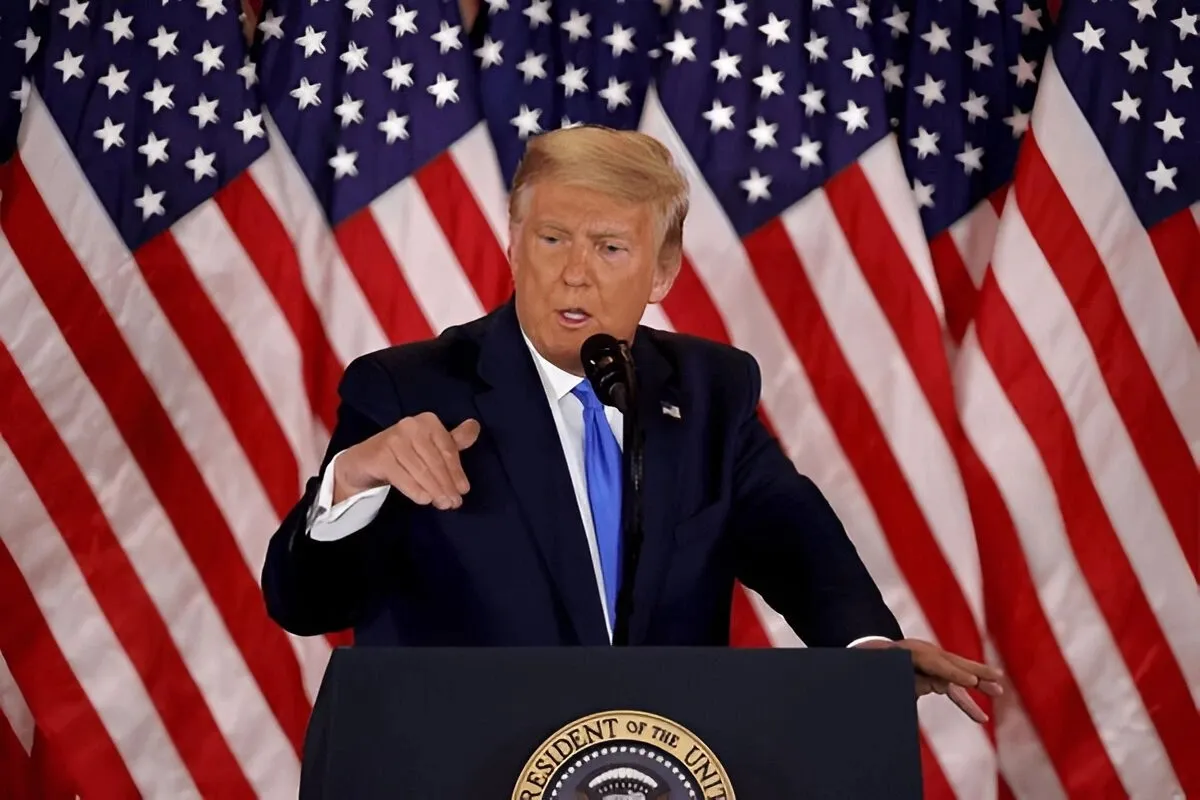Impact of Trump’s Tariff Delay: Global Indices See Short-Term Gains
In a significant move affecting global trade and financial markets, Trump’s Tariff delay has led to a short-term surge in global indices. Investors welcomed the decision, which eased concerns about escalating trade tensions and provided temporary relief to businesses dependent on international supply chains. As markets react to this policy shift, analysts are examining the broader implications of the tariff delay on economic stability, investor confidence, and long-term trade dynamics.
Why Did Trump Delay the Tariffs?
The decision to postpone Trump’s Tariff hikes comes amid increasing pressure from businesses, trading partners, and economic advisors. Several key factors contributed to this shift:
Economic Stability Concerns
Imposing tariffs too soon could have disrupted financial markets and slowed economic growth. By delaying the tariffs, the administration sought to maintain economic momentum and prevent potential downturns.
Negotiation Leverage
Delaying the tariffs provides the U.S. with greater leverage in ongoing trade negotiations. The move signals a willingness to engage in diplomacy while keeping the option open for future tariff adjustments.
Stock Market Volatility
Markets tend to react sharply to tariff announcements. The postponement helped stabilize stock indices, reducing short-term uncertainty and boosting investor sentiment.
Immediate Market Reaction to Trump’s Tariff Delay
Following the announcement, major global stock indices experienced short-term gains, reflecting optimism among investors.
U.S Markets
- The Dow Jones Industrial Average saw an uptick as trade war fears temporarily subsided.
- The S&P 500 and Nasdaq also posted gains, with technology and manufacturing stocks benefiting the most.
European and Asian Markets
- European indices such as the FTSE 100 and DAX reacted positively, as businesses anticipated smoother trade relations.
- Asian markets, particularly China’s Shanghai Composite, witnessed rebounds due to reduced trade pressure.
Currency and Commodity Markets
- The U.S. dollar strengthened as investor confidence improved.
- Oil prices rose slightly, reflecting optimism about sustained global trade activity.
Long-Term Implications of the Tariff Delay
Trade Policy Uncertainty Remains
While the tariff delay is a short-term relief, businesses and global economies remain cautious. The possibility of tariffs being reinstated later could keep investors on edge.
Supply Chain Adjustments
Companies that were previously shifting supply chains due to Trump’s Tariff threats may pause or slow down their relocation efforts. However, businesses will likely continue seeking alternative trade routes to minimize risks.
Inflation and Consumer Prices
Delaying tariffs on imported goods prevents immediate price hikes for consumers. If tariffs were imposed, industries relying on imported materials would have passed costs onto consumers, increasing inflation.
Political and Economic Ramifications
- The decision to delay tariffs could impact U.S. election strategies, with economic stability being a major concern for voters.
- Trading partners may view this as an opportunity to negotiate better terms, altering the dynamics of future trade agreements.
Industries Most Affected by Trump’s Tariff Delay
Technology Sector
Many tech companies rely on Chinese imports for components. The delay in tariffs reduces immediate cost pressures, benefiting companies like Apple, Intel, and Nvidia.
Automotive Industry
Automakers sourcing parts from overseas can maintain stable production costs for now. The delay prevents sudden price increases on vehicles and parts.
Agriculture and Consumer Goods
Farmers and retailers benefit from the delay as tariff costs on agricultural products and essential goods are postponed, ensuring stable prices.
What’s Next for Global Markets?
While the delay provides temporary relief, uncertainty remains about the future of Trump’s Tariff policies. Investors will closely monitor:
- Future trade talks between the U.S. and China.
- Policy shifts based on economic data and market responses.
- Potential political decisions that could reinstate or adjust tariffs.
Conclusion
The postponement of Trump’s Tariff hikes has resulted in short-term gains for global markets, easing fears of immediate trade disruptions. While this move offers temporary stability, businesses and investors remain cautious about future trade policies. The global economy continues to adapt, balancing growth opportunities with the risks of ongoing tariff uncertainty. Investors should stay informed about policy updates, as future decisions will shape market trends and international trade relations.
Frequently Asked Questions (FAQs)
1. How did Trump’s Tariff delay impact the stock market?
The delay led to short-term gains in global stock indices, with major markets like the Dow Jones, S&P 500, and Nasdaq experiencing positive reactions. Investors welcomed the move as it reduced immediate trade uncertainty.
2. Will the tariff delay prevent future trade conflicts?
Not necessarily. While the delay provides temporary relief, trade tensions remain. The possibility of reinstating tariffs or new trade policies could still impact global markets in the future.
3. Which industries benefit the most from the tariff delay?
The technology, automotive, and agriculture industries benefit the most, as they rely on international trade for supply chains and pricing stability. The delay prevents sudden cost increases on goods and raw materials.



